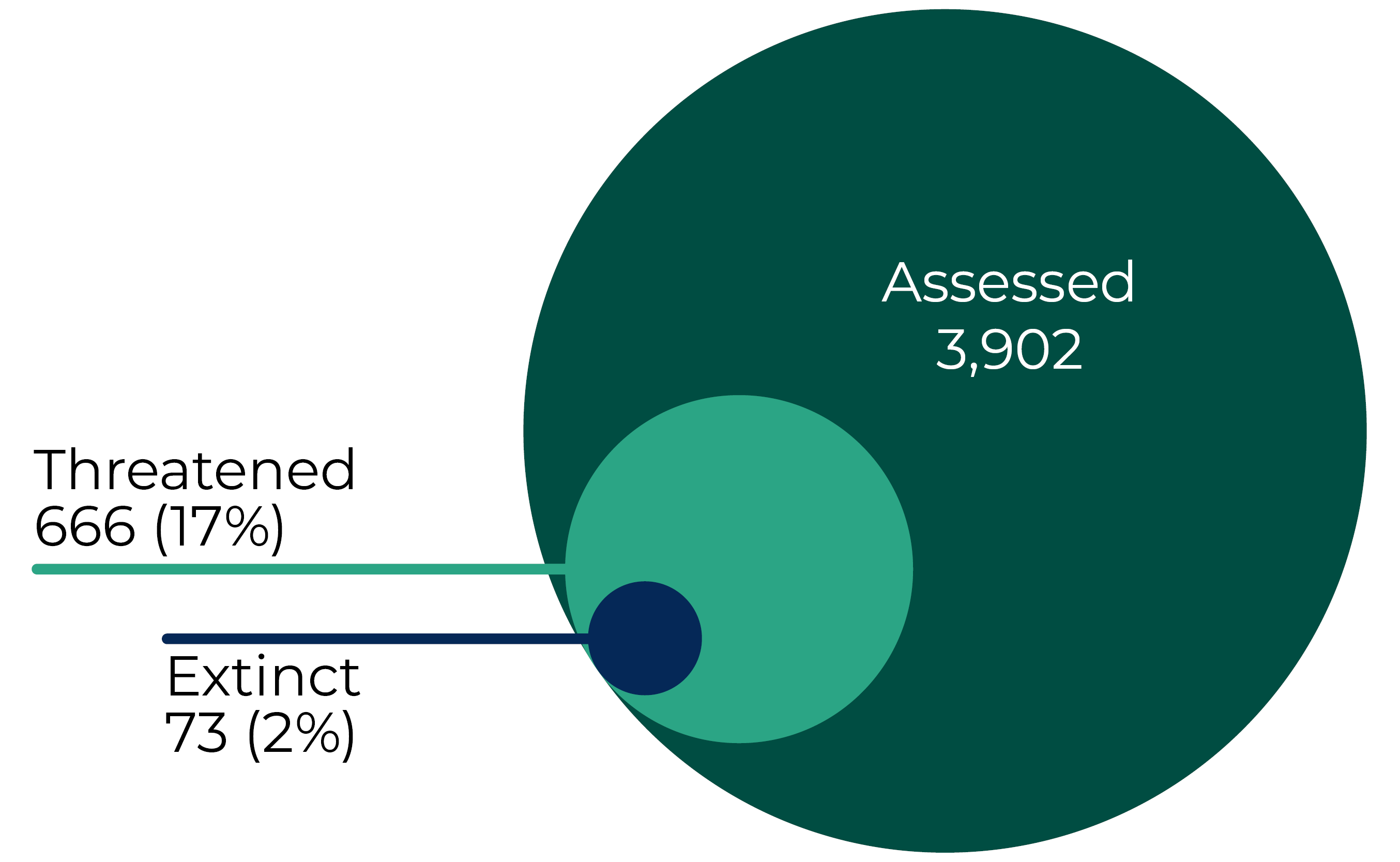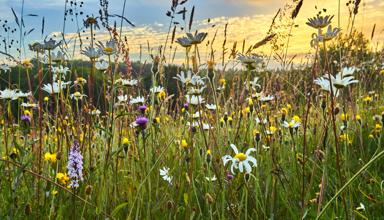You’ve probably heard all about COP27, but what about COP15?
COP15 is the long-awaited UN biodiversity summit. It’s the world’s attempt to tackle the ‘nature emergency’, by agreeing action to reverse the major loss of biodiversity caused by humans.
After two years of delays due to the coronavirus pandemic, the summit is taking place in two parts. The first part took place virtually in October 2021. The second part, a two-week conference, starts on 7 December 2022 in Montreal, Canada. The original pre-pandemic hosts, China, will hold the COP15 Presidency.
This article discusses the state of biodiversity, and how COP15 could make a difference globally and in Wales.
We are entering the sixth mass extinction event
Global biodiversity levels have always undergone changes. Scientists differentiate six mass extinctions since life on Earth began, interspersed with periods of thriving biodiversity.
Each mass extinction is thought to have resulted in at least 75% of all species becoming extinct. Fossils found on Welsh coasts are evidence of species that became extinct hundreds of millions of years ago, replaced by others through evolution.
Scientists say we are entering the sixth mass extinction event, and the first linked to human activity. Research suggests the average rate of vertebrate species loss over the last century is up to 100 times higher than pre-human extinction rates.
Since biodiversity provides ‘ecosystem services’, such as pollination and flood prevention, its loss causes risks to human safety and well-being.
17% of 3,902 species studied in Wales are threatened with extinction.
Species extinction risk in Wales (1970 baseline)

Source: State of Nature Report 2019
The Senedd declared a nature emergency
Last year the Senedd declared a ‘nature emergency’. It acknowledged the significant loss of biodiversity caused by humans and set out its expectations for action to restore it.
It agreed there should be parity between actions taken by the Welsh Government to tackle climate change and biodiversity loss. It called on the Welsh Government to:
- introduce a legally binding requirement to reverse biodiversity loss through statutory targets; and
- legislate to establish an independent environmental governance body for Wales.
Slow progress means Wales risks falling behind
Although Wales has statutory targets to tackle climate change, there are currently no domestic targets to halt and reverse biodiversity loss.
Environmental NGOs have lobbied on this issue for years and there is renewed focus recently increased in light of COP15 and the anticipation of new international biodiversity targets.
In terms of developments in other UK countries, the Environment Act 2021 requires the UK Government to lay draft environmental targets (including biodiversity targets) in England by 31 October 2022. DEFRA has consulted on these targets, but the October deadline has been missed. In Scotland, a shared policy programme between the government and Scottish Greens commits to a Natural Environment Bill, planned for year three of the Scottish Parliament. It is expected to include targets to halt the decline of Scotland’s biodiversity by 2030.
Environmental stakeholders in Wales are concerned about an ‘environmental governance gap’. Following EU withdrawal, the EU’s system of governance - holding governments to account on implementation of environmental law - doesn’t apply in the UK anymore. Further concerns have been raised about the robustness of the interim measures the Welsh Government has put in place.
Although other UK countries have introduced legislation to fill this gap, Wales has not, prompting stakeholders to say Wales has “the weakest environmental governance structures in western Europe”.
The Welsh Government has committed to legislate to address these matters. However the Senedd’s Climate Change, Environment and Infrastructure Committee is frustrated by progress. It’s calling for the Welsh Government to bring forward a Bill in the second year of the Sixth Senedd to establish biodiversity targets and an environmental governance body.
Global targets have not been met
The Convention on Biological Diversity (CBD) is the UN’s forum for agreeing action on biodiversity. It requires Parties to develop national strategies and action plans to protect biodiversity. The Nature Recovery Action Plan is the Welsh Government’s strategy to address the CBD’s aims in Wales.
At COP10 (in Nagoya, Aichi Prefecture, Japan) the CBD set a Strategic Plan for Biodiversity 2011-2020. It agreed five goals with 20 ‘Aichi targets’ and recognised the need to address the underlying drivers putting pressure on biodiversity.
COP10 aimed to:
- at least halve and, where feasible, bring close to zero the rate of natural habitat loss;
- conserve 17% of terrestrial and inland water areas;
- conserve 10% of marine and coastal areas; and
- restore at least 15% of degraded areas through conservation and restoration.
A decade on, at the global level, none of the 20 Aichi targets have been fully achieved. Just six were “partially achieved”.
What’s at stake with COP15?
The next CBD framework for the post-2020 era was expected to be adopted at COP15 in 2020. Two years on, following several delays, COP15 is now taking place.
2020 marked the end of the ‘UN Decade on Biodiversity’ which hoped to see us ‘living in harmony in nature’. We are far from it. Environmentalists are calling for COP15 to urgently set new ambitious goals to address the ongoing nature crisis.
A draft framework has been drawn up ahead of the summit. It aims to protect 30% of land and seas by 2030, to restore at least a fifth of degraded freshwater, marine and terrestrial ecosystems, and to tackle environmentally harmful government subsidies. It includes a target to reduce nutrients lost to the environment by at least half, pesticides by at least two thirds, and to eliminate the discharge of plastic waste. It suggests a “rights-based approach” to protect the rights of indigenous peoples and local communities to their lands and waters.
Environmentalists are disappointed that the ambition and urgency of the draft framework do not match what is needed to secure a nature-positive world this decade.
All of the UK governments have committed to supporting the target to protect 30% of land and seas by 2030. The Welsh Government’s Minister for Climate Change said this would require “strategic, regulatory and legislative action” and launched a ‘biodiversity deep dive’ to explore the target. The deep dive concluded in October, identifying key themes and recommendations for specific actions
In March, further negotiations took place in Geneva on the new global framework for biodiversity. RSPB summarised the outcomes, concluding “there is a large gap between what was accomplished and what is still needed for the crucial final agreement at COP15”.
The Minister for Climate Change has previously responded to calls for domestic biodiversity targets by stating an ambition to reflect international commitments made at COP15. In a recent joint statement alongside the other UK environmental regulators, Natural Resources Wales has called for binding biodiversity targets to be set at COP15.
Expectant eyes will fall on the Welsh Government following the summit, looking for domestic targets to tackle the urgent nature crisis.
Find out more in our guides on biodiversity and environmental governance.
Article by Dr Katy Orford, Senedd Research, Welsh Parliament






